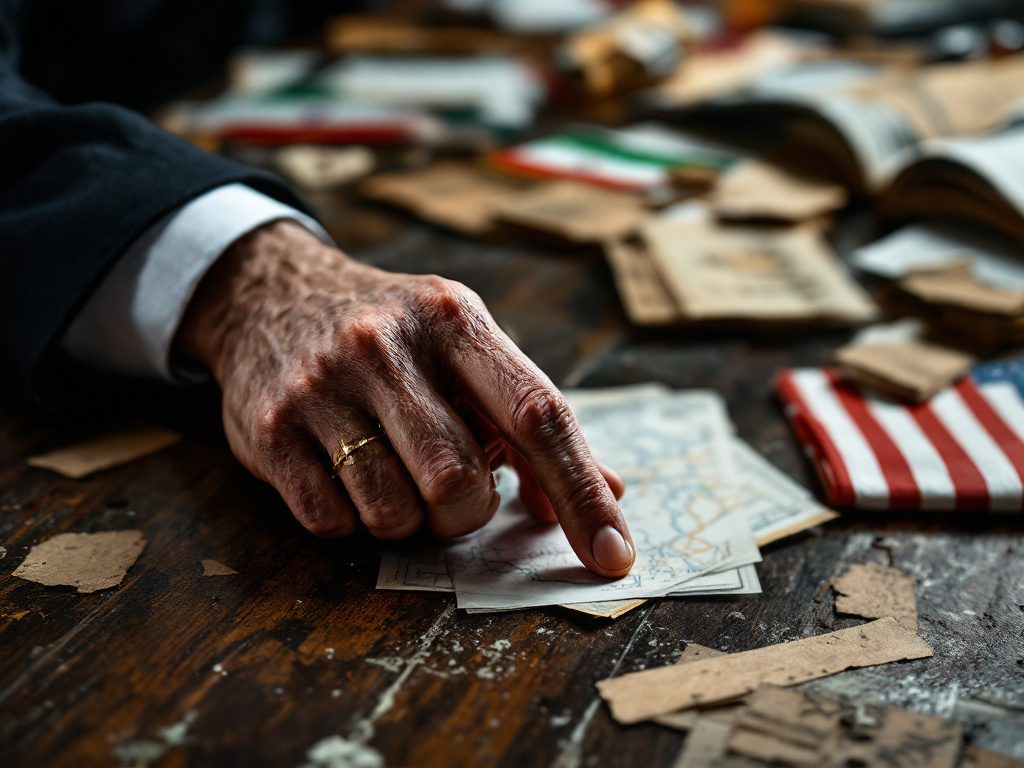Setting the Stage: Rhetoric vs. Reality in U.S.-Iran Nuclear Talks
Dark clouds have gathered over what was supposed to be a new phase in U.S.-Iran relations. The latest round of nuclear negotiations sits in limbo after U.S. Secretary of State Marco Rubio issued a stark ultimatum: Iran must not only halt all uranium enrichment but also allow American inspectors unfettered access to every nuclear facility—military and civilian alike. A generation removed from the tense, Obama-era nuclear diplomacy, Americans find themselves asking, can a maximalist approach foster peace, or does it merely repeat historical cycles of mistrust?
Rubio’s demands don’t stop at enrichment. He insists Iran must abandon its ballistic missile program and stop supporting regional proxy groups like the Houthis. The Trump administration, for its part, has doubled down. President Trump’s warning—”They will not be allowed to do business with the United States of America in any way, shape, or form”—threatens every international entity still trading in Iranian oil.
What lies beneath this renewed pressure is a familiar conservative philosophy: absolute denial of Iran’s right to a domestic nuclear capability—no matter the safeguards. A glaring question emerges: Can zero-enrichment demands and sweeping sanctions achieve nonproliferation goals without risking broader instability?
Lessons Unlearned: Conservative Dogma Meets Middle East Complexity
A closer look reveals a chasm between Rubio’s talking points and practical diplomacy. As Harvard’s Dr. Suzanne Maloney, an expert on Iranian policy, notes, “Refusal to acknowledge Iran’s insistence on sovereignty over its own nuclear program ignores both national pride and the powerful legacy of colonial resistance in the region.” History bears her out. In 2015, the internationally brokered Joint Comprehensive Plan of Action (JCPOA) allowed tightly monitored enrichment but drastically limited Iran’s capabilities. The deal produced years of compliance, according to the International Atomic Energy Agency (IAEA), until its unraveling in the Trump years.
Why do these lessons matter now? Rubio’s call for Iran to import all nuclear fuel “as dozens of other countries do” ignores that, unlike allies such as Japan or South Korea, Iran’s government remains deeply suspicious of Western intentions. Former agreements allowed oversight, but claims of “cheating” often proved exaggerated or outright false: As the Arms Control Association documents, violations were rare, and most experts attributed lapses to ambiguous wording rather than deliberate malfeasance.
Rubio’s demands would require Iran to surrender essential elements of its energy sovereignty.
“The notion that Iran will simply walk away from domestic enrichment under pressure is ahistorical—and risks fueling the very extremism America seeks to constrain.”
— Michael O’Hanlon, Brookings Institution defense analyst
The conservative narrative often conjures parallels to the failures of appeasement in Europe or the Soviet Union, but overlooks the West’s recent success in containing nuclear ambitions through graduated, trust-building agreements. Why discard a tool that worked in favor of a failed playbook that elevates confrontation over cooperation?
Sanctions, Soaring Stakes, and the Politics of Perpetual Hostility
The Trump-Rubio doctrine wields sanctions as its sharpest weapon. The latest round of U.S. penalties—aimed at Iran’s largest revenue streams in oil and petrochemicals—are described by experts like Columbia University’s Richard Nephew as “brutal but often counterproductive.” Yet, Rubio’s allies point to Western failures to take despots at their word, citing 20th-century anxieties about communism and the lessons of Munich. The rhetorical script repeats itself, with hawkish voices warning that giving Iran even tightly proscribed nuclear capabilities will endanger American and Israeli security. But the historical record is more nuanced.
Recent studies, including a 2022 analysis from the International Crisis Group, highlight that maximalist U.S. sanctions more often undermine Iran’s reformist factions and strengthen hard-liners, shrinking the political space for any compromise. The pattern: stronger economic pain leads to a cycle of escalation rather than deterrence. Sanctions did real damage to Iran’s economy—and to its ordinary citizens—but failed to deliver regime change or a permanent rollback of nuclear activities. In fact, since the collapse of the JCPOA, Iran’s stockpiles of highly enriched uranium have surged to new heights, raising fears not of compliance, but of outright brinksmanship.
Beyond that, one wonders: Is perpetual confrontation what the American public truly wants—or the wisest path for global security? According to a recent Pew Research Center survey, a sizable majority of Americans support diplomacy and verifiable constraints rather than permanent isolation or military threats. The conservative approach, rooted in distrust and punishment, has not yielded a safer world, but a more polarized and unpredictable one.
What Comes Next: Will Politics Trump Progress?
Negotiators in Rome may have postponed another round, but the stakes remain immediate. Iranian officials reject the notion of transferring enriched uranium abroad or ceding core sovereignty. U.S. politics, meanwhile, are locked in an election-year echo chamber, with hard-line rhetoric crowding out pragmatic compromise. Rubio’s approach—demanding total capitulation or risk of war—might rally partisan bases, but it risks leaving the world less stable, not more.
Sustainable security demands a more nuanced vision: one where robust verification, diplomatic creativity, and respect for sovereignty shape the deal, not just raw power. The next administration, whichever party leads it, faces a crossroads: repeat the past’s mistakes or revive the spirit of tough, honest deal-making that once brought the world back from the brink. Given history’s lessons, the choice shouldn’t be so hard.

